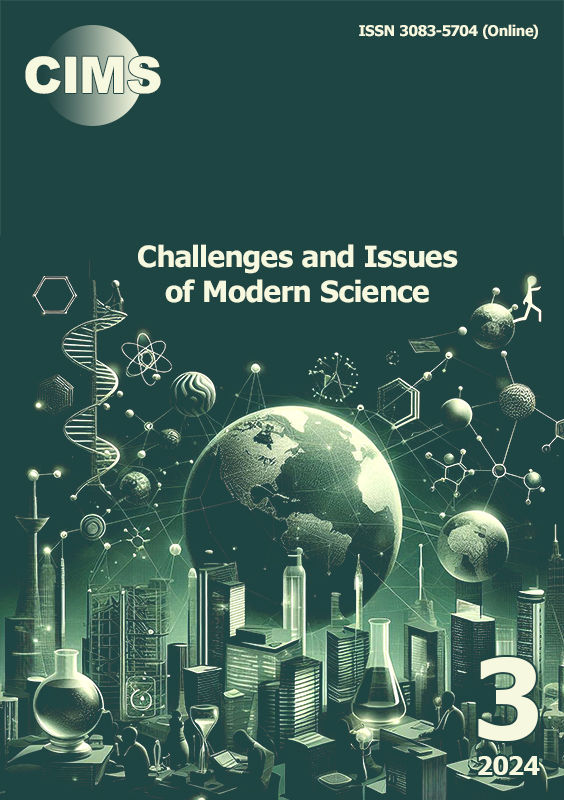Analysis of the leader's role in ensuring project success: style, adaptability, and emotional intelligence
Keywords:
leadership, project success, leadership styles, emotional intelligence, team cohesion, adaptability, organizational cultureAbstract
Purpose. The purpose of this paper is to explore the critical role of leadership in ensuring the success of a project. It aims to analyze how various leadership styles, skills, and strategies contribute to effective project management, team cohesion, and the achievement of project goals. The study seeks to highlight the direct and indirect ways in which a leader influences project outcomes and how leadership adaptability can address challenges faced in different phases of project implementation. Design / Method / Approach. The research employs a qualitative approach, examining existing literature on leadership in project management. Findings. The findings suggest that leadership plays a decisive role in project success. The ability of a leader to adapt to unforeseen challenges, manage team dynamics, and make informed decisions under pressure is crucial. The study also emphasizes the importance of emotional intelligence in leadership, especially in maintaining team morale and motivation. Theoretical Implications. This research contributes to the theoretical understanding of leadership in project management by providing a framework that links leadership styles to specific project success factors. It reinforces existing theories of transformational and adaptive leadership, while also proposing new insights into the significance of emotional intelligence and decision-making agility in project environments. Practical Implications. For project managers and organizations, this study offers practical guidance on how to develop leadership capabilities that enhance project success. Training programs that focus on emotional intelligence, communication skills, and adaptability are recommended for project leaders. Moreover, organizations are encouraged to foster a culture that supports continuous learning and leadership development. Originality / Value. The originality of this paper lies in its comprehensive analysis of leadership in diverse project environments. The value of the study extends to both academic and practical applications, offering actionable insights for improving project leadership. Research Limitations / Future Research. The study is limited by its qualitative nature and the specific industries from which data were collected. Future research could expand the scope to include quantitative analysis and explore leadership in different cultural and organizational contexts. Paper Type. Review Paper.
Downloads
References
Гринько, Т. В. (Ред.) (2023). Підприємництво: сучасні виклики, тренди та транс-формації (монографія).Видавець Біла К. О. https://tinyurl.com/978-617-645-510-3
Шевяков, О. (2024). Моделювання лідерського потенціалу фахівця. Challenges and Issues of Modern Science, 2, 349-352. https://cims.fti.dp.ua/j/article/view/112
Abbasi M.H., Siddiqi A., & Rahat ul Ain A. (2011). Role of effective communications for enhancing leadership and entrepreneurial skills in university students. International Journal of Business and Social Science, 2(10), 242–250. https://ijbssnet.com/journals/Vol.%202_No._10;_June_2011/25.pdf
Eagly, A. H., & Johannesen-Schmidt, M. C. (2001). The leadership styles of women and men. Journal of social issues, 57(4), 781-797. https://doi.org/10.1111/0022-4537.00241
Fischer, T., & Sitkin, S. B. (2023). Leadership styles: A comprehensive assessment and way forward. Academy of Management Annals, 17(1), 331-372. https://doi.org/10.5465/annals.2020.0340
Ghorbani, A. (2023). A review of successful construction project managers’ competencies and leadership profile. Journal of Rehabilitation in Civil Engineering, 11(1), 76-95. https://doi.org/10.22075/jrce.2022.24638.1560
Hudoshnyk, O. V., & Krupskyi, O. P. (2023). Media Possibilities of Comics: Modern Tools for the Formation and Presentation of Organizational Culture. European Journal of Management Issues, 31(1), 40-49. https://doi.org/10.15421/192304
Islami, X., & Mulolli, E. (2020). A conceptual framework of transformational leadership as an influential tool in the team performance. European Journal of Management Issues, 28(1-2), 13-24. https://doi.org/10.15421/192002
Krasnokutska, N., & Podoprykhina, T. (2020). Types and terminology of remote project teams. European Journal of Management Issues, 28(1-2), 34-40. https://doi.org/10.15421/192004
Krupskyi, O.P., & Stasiuk, Y. (2010). Formation of information competence of the future managereconomist in the modern educational space. https://philarchive.org/archive/KRU-20
Lyons, J. B., & Schneider, T. R. (2009). The effects of leadership style on stress outcomes. The Leadership Quarterly, 20(5), 737-748. https://doi.org/10.1016/j.leaqua.2009.06.010
Makedon, V., Krasnikova, N., Krupskyi, A., Stasiuk, Y. (2022). Arrangement of digital leadership strategy by corporate structures: a review. Economic Studies, 31(8), 19-40. https://tinyurl.com/bdz3uw8w
Mwita, K. M., Ndikumana, E. D., & Ringo, C. J. (2023). The Role of Transformational and Transactional Leadership on Turnover Intentions in Tanzanian Commercial Banks: The Moderating Effect of Perceived Organizational Support. European Journal of Management Issues, 31(2), 102-112. https://doi.org/10.15421/192309
Piwowar-Sulej, K., & Iqbal, Q. (2023). Leadership styles and sustainable performance: A systematic literature review. Journal of Cleaner Production, 382, 134600. https://doi.org/10.1016/j.jclepro.2022.134600
Podgórska, M., & Detko, Ł. (2023). Situational leadership in project management: empirical research of project managers. Scientific Papers of Silesian University of Technology Organization and Management Series, 2023(168), 375-392. https://doi.org/10.29119/1641-3466.2023.168.26
Praise, I., & Rapina, R. (2022). The Role of Internal Audit, Leadership Effectiveness, and Organizational Culture in Risk Management Effectiveness. European Journal of Management Issues, 30(2), 83-91. https://doi.org/10.15421/192208
Roth, O. D. (2022). Adaptive crisis management skills for effective leadership during times of uncertainty and chaos (Doctoral dissertation). Alliant International University. https://tinyurl.com/58atbje2
Vivek, R., & Krupskyi, O. P. (2024). EI & AI In Leadership and How It Can Affect Future Leaders. European Journal of Management Issues, 32(3), 174-182. https://mi-dnu.dp.ua/index.php/MI/article/view/512
Downloads
Published
Issue
Section
License
Copyright (c) 2024 Daniil Abramov, Yuliia Stasiuk (Author)

This work is licensed under a Creative Commons Attribution 4.0 International License.
All articles published in the journal Challenges and Issues of Modern Science are licensed under the Creative Commons Attribution 4.0 International (CC BY) license. This means that you are free to:
- Share, copy, and redistribute the article in any medium or format
- Adapt, remix, transform, and build upon the article
as long as you provide appropriate credit to the original work, include the authors' names, article title, journal name, and indicate that the work is licensed under CC BY. Any use of the material should not imply endorsement by the authors or the journal.



















